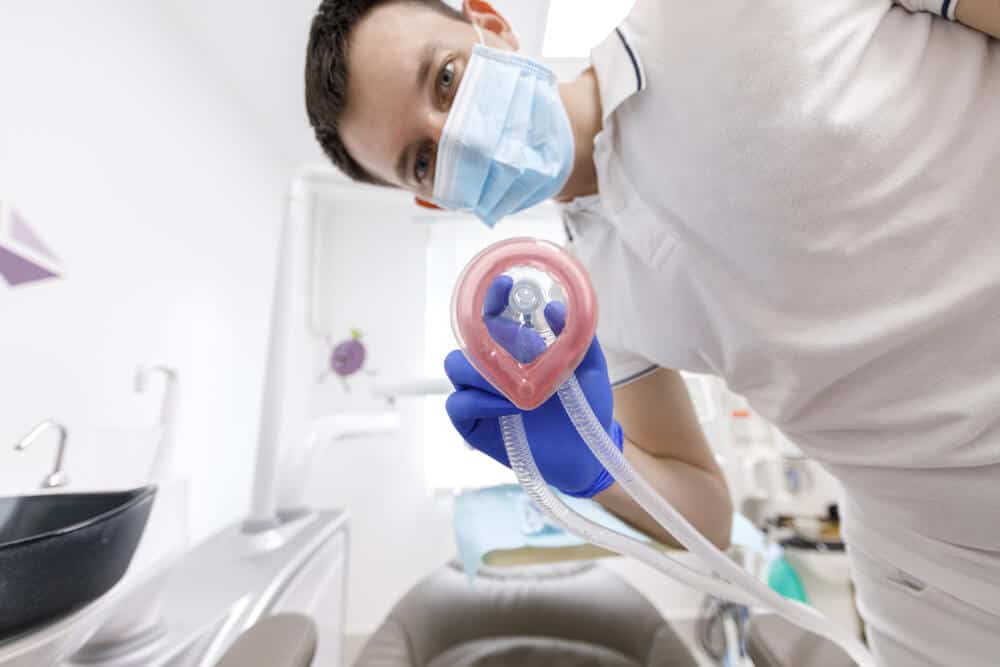Anesthesia Versus IV Sedation Dentistry
Sedation and general anesthesia are both used to help patients during dental procedures. According to the British Columbia Dental Association, they reduce anxiety, prevent pain, and ensure the procedure’s safety. However, both can cause drowsiness, impair coordination, and impair your ability to remember the process. Hence, you should always bring an escort to the dental office if you are undergoing sedation or anesthesia. Despite these parallels, sedation and anesthesia are not the same things.
What exactly is IV sedation dentistry?
IV sedation is administering a sedative through a vein, allowing the medication to take effect quickly. As IV sedation is administered intravenously, the dentist can adjust the level of sedation as needed during the procedure. This also makes it simple to adjust the amount of sedative used for each patient, lowering the risk of complications and side effects.
How does it feel to undergo IV sedation?
The majority of patients are relaxed and sleepy. They are usually semi-aware and able to communicate with the dentist, though most patients have little or no memory of the procedure when IV sedation is used.
What is General Anesthesia?
A physician anesthesiologist will administer medicine through a mask or an IV inserted in a vein to provide general anesthesia. You will be unconscious while the anesthesia is working, and many of your body’s functions will slow down or require assistance to function correctly. For example, a tube may be positioned in your throat to help you breathe. The physician anesthesiologist will monitor your heart rate, blood pressure, breathing, and other vital signs during the surgery or surgery to ensure they are regular and consistent while unconscious and pain-free.
Who Is Eligible for IV Sedation and/or Anesthesia in dentistry?
Before deciding on sedation vs. anesthesia, Dr. Adatrow will go over your options with you and make a recommendation. American Dental Society of Anesthesiology states, sedation may be appropriate for a dental phobia patient. Other considerations are for patients suffering from a medical condition exacerbated by stress, such as asthma or epilepsy, or a lengthy procedure. Furthermore, mentally challenged patients, children over the age of one, and any patients who are unresponsive to local anesthesia can be sedated.
According to the Journal of Dental Anesthesia and Pain Medicine, general anesthesia may benefit patients with special needs such as intellectual disabilities and physical impairments.
When Is IV Sedation in Dentistry Appropriate?
Dentists frequently recommend IV sedation for oral surgery procedures to help patients relax during lengthy cosmetic or reconstructive dental procedures. This often includes implant placements as well as wisdom tooth extractions. IV sedation may also be recommended for less invasive dental treatments to help highly anxious patients.
When Is General Anesthesia in Dentistry Necessary?
Because IV sedation and other forms of sedation dentistry are so effective, general anesthesia is no longer used for many dental procedures. However, it can be helpful or indicated in certain situations.
If you have a high tolerance for IV sedation medications, you may require general anesthesia for dental procedures. In addition, in rare cases, general anesthesia may be used for dental procedures on highly anxious patients who cannot cooperate when sedated.
General anesthesia may be the recommended option for traumatic dental procedures, such as extracting wisdom teeth that are entirely impacted or covered in bone. In addition, other types of complex oral surgery may necessitate general anesthesia.
Never let the fear of dental treatment keep you from getting the dental care you require!
Dr. Adatrow is here to rescue!
If you have any further questions about oral health, you can schedule a consultation with Dr. Adatrow. Dr. Adatrow has more than 18 years of experience in placing dental implants, with a success rate of over 97%, and can provide you with the best possible dental treatment. He is a Board-Certified Prosthodontist and Periodontist. Please contact our office to schedule your consultation now!

